Tracy K. Smith
Song
Tracy K. Smith’s poem “Song” is filled with observations of a loved person; their habits, the things they do when they think nobody is watching. Love is shown and celebrated in observing the small practices of another.
A question to reflect on after you listen: What’s something small and quiet you’ve noticed about a loved one?
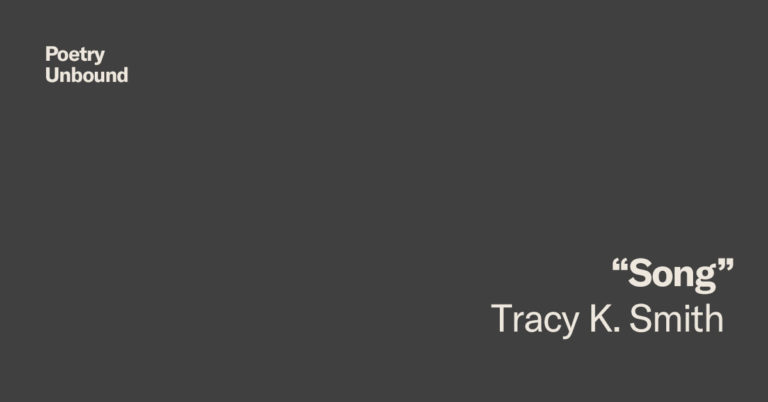
© All Rights Reserved.
Guest

Tracy K. Smith is a professor of creative writing at Princeton University and the former Poet Laureate of the United States. Her poetry collections include Life on Mars, winner of the Pulitzer Prize, Duende, and Wade in the Water. Her memoir is Ordinary Light. She’s the co-editor of the book, There’s a Revolution Outside, My Love: Letters from a Crisis.
Transcript
Pádraig Ó Tuama, host: My name is Pádraig Ó Tuama, and I’m a poet from Ireland. Poetry has taught me that it can choose the most unexpected places to pause. So, sometimes, rather than going for the high moment of drama, the high moment of the erotic, the high moment of the extraordinary, poetry will choose the small moment of pause just to look at what’s really happening, to look at a few layers deep and to let that small pause, that ordinary moment, open up with all the fullness of its being, to us.
[music: “At Dusk” by Gautam Srikishan]
“Song” by Tracy K. Smith:
“I think of your hands all those years ago
Learning to maneuver a pencil, or struggling
To fasten a coat. The hands you’d sit on in class,
The nails you chewed absently. The clumsy authority
With which they’d sail to the air when they knew
You knew the answer. I think of them lying empty
At night, of the fingers wrangling something
From your nose, or buried in the cave of your ear.
All the things they did cautiously, pointedly,
Obedient to the suddenest whim. Their shames.
How they failed. What they won’t forget year after year.
Or now. Resting on the wheel or the edge of your knee.
I am trying to decide what they feel when they wake up
And discover my body is near. Before touch.
Pushing off the ledge of the easy quiet dancing between us.”
This poem begins in childhood, all those years ago — pencils, fastening a coat clasp, putting up your hands. And then it seems to change. It’s in the imagination about the past. And then it moves.
That bit when it says, “I think of them lying empty /At night, of the fingers wrangling something / From your nose, or buried in the cave of your ear” — you could imagine that this is an older person looking at a child picking their nose or wrangling something from their ear. But at this stage, the poem has changed, and it really is a poem between two adults. And so, it is describing the intimacies with which we use our hands for our own bodies, the things that people who love each other on a long-term basis know when they’re not trying to impress each other, the things that lovers know about their nighttime habits or their middle-of-the-night habits or where it is your hands go when you’re asleep. There’s something so intimate in that, and the knowledge of that and the describing of that, that isn’t for broadcast — that is, however, for observation when people who love each other look at each other.
The film Jerry Maguire has this great line which is at the heart of the film, really, “You complete me.” And that seemed to enter into certain parts of people’s public imagination about language. I heard it over and over again, people speaking about “complete” and “I’m completed by you.” And I have found that to be such a limitation of the imagination of what it means to be a single person, a person who is in a relationship and a person who isn’t in a relationship, because whether we are or not, we’re still a single person. We never become two people; we’re always just one person, and we can never be the other person that we’re with. That’s the point: We love them, [laughs] we hope.
I think one of the fascinating things about this poem is its title, “Song.” Why would you call this poem “Song”? It feels to me that the fact that the last word in the poem is “us,” that it’s describing the music between the poet and the lover. In Irish, “love” isn’t a verb. And so, one of the ways that you can say “I love you” in Irish is “mo cheol thú” — “you are my music.” And I feel like the poet in this poem, Tracy K. Smith, is describing the music between two people and that the music between the two people doesn’t eradicate the two people; in fact, it deepens their differences. It deepens the fact that it’s one person speaking to another, and then them speaking back, one person sleeping, the other person watching the other person sleeping, and that the music is in the space between, the easy quiet dancing between us, and the closest point that this poem gets to the question of song is that lovely, lovely verb towards the end, “dancing.”
A friend of mine, when she gave birth, had her child put on her breast. And she heard herself say to her child, “Hello, stranger.” And then she felt guilty. And then the guilt disappeared, because she realized, “Of course, we’re strangers to each other.” And there’s an intuition in this poem that recognizes that we are strangers to each other and that we can never know each other. The imagination, the reckoning with failure, and the space between us as lovers is always going to be different, and that the space between us can be bridged by the intimacy of hands.
But also, the shortness of some of these lines and the length of some of these lines, is describing what love feels like, how it can feel like that sometimes things stretch on for a long time, or other times, they end quickly; that we are in bursts of experience with each other, and we need to take a withdrawal and then go back and a withdrawing and then go back. And the artistry of the line length of this poem speaks to a deep wisdom about the experience of love.
“Song” by Tracy K. Smith:
“I think of your hands all those years ago
Learning to maneuver a pencil, or struggling
To fasten a coat. The hands you’d sit on in class,
The nails you chewed absently. The clumsy authority
With which they’d sail to the air when they knew
You knew the answer. I think of them lying empty
At night, of the fingers wrangling something
From your nose, or buried in the cave of your ear.
All the things they did cautiously, pointedly,
Obedient to the suddenest whim. Their shames.
How they failed. What they won’t forget year after year.
Or now. Resting on the wheel or the edge of your knee.
I am trying to decide what they feel when they wake up
And discover my body is near. Before touch.
Pushing off the ledge of the easy quiet dancing between us.”
Lily Percy: “Song” comes from Tracy K. Smith’s book Life on Mars. Thank you to Graywolf Press, who published the book and to The Permissions Company, who let us use Tracy’s poem. Read it on our website at onbeing.org.
Poetry Unbound is Tony Liu, Chris Heagle, Kristin Lin, Erin Colasacco, Serri Graslie, Eddie Gonzalez, and me, Lily Percy. Our music is composed and provided by Gautam Srikishan. This podcast is produced by On Being Studios, which is located on Dakota land. We also produce other podcasts you might enjoy, like On Being with Krista Tippett, Becoming Wise, and This Movie Changed Me. Find those wherever you like to listen, or visit us at onbeing.org to find out more.
Books & Music
Recommended Reading
The On Being Project is an affiliate partner of Bookshop.org and Amazon.com. Any earnings we receive through these affiliate partnerships go into directly supporting The On Being Project.






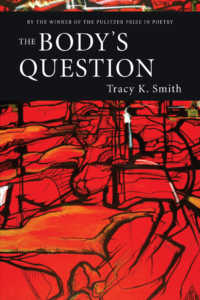
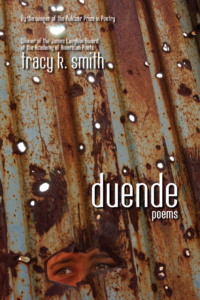
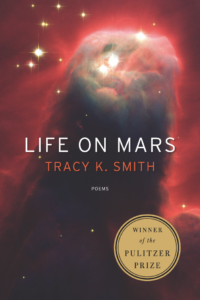
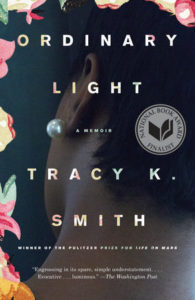
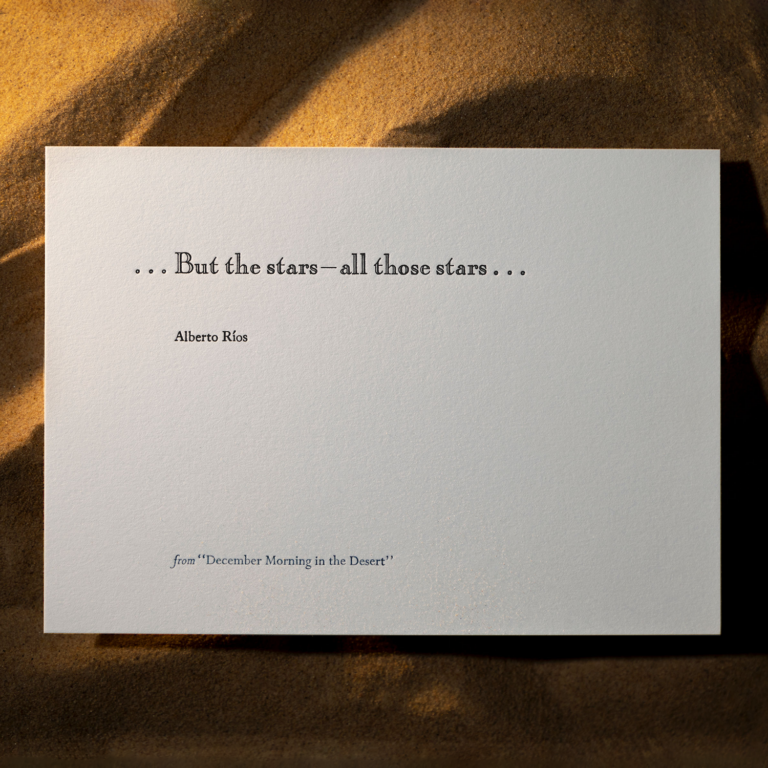
Reflections